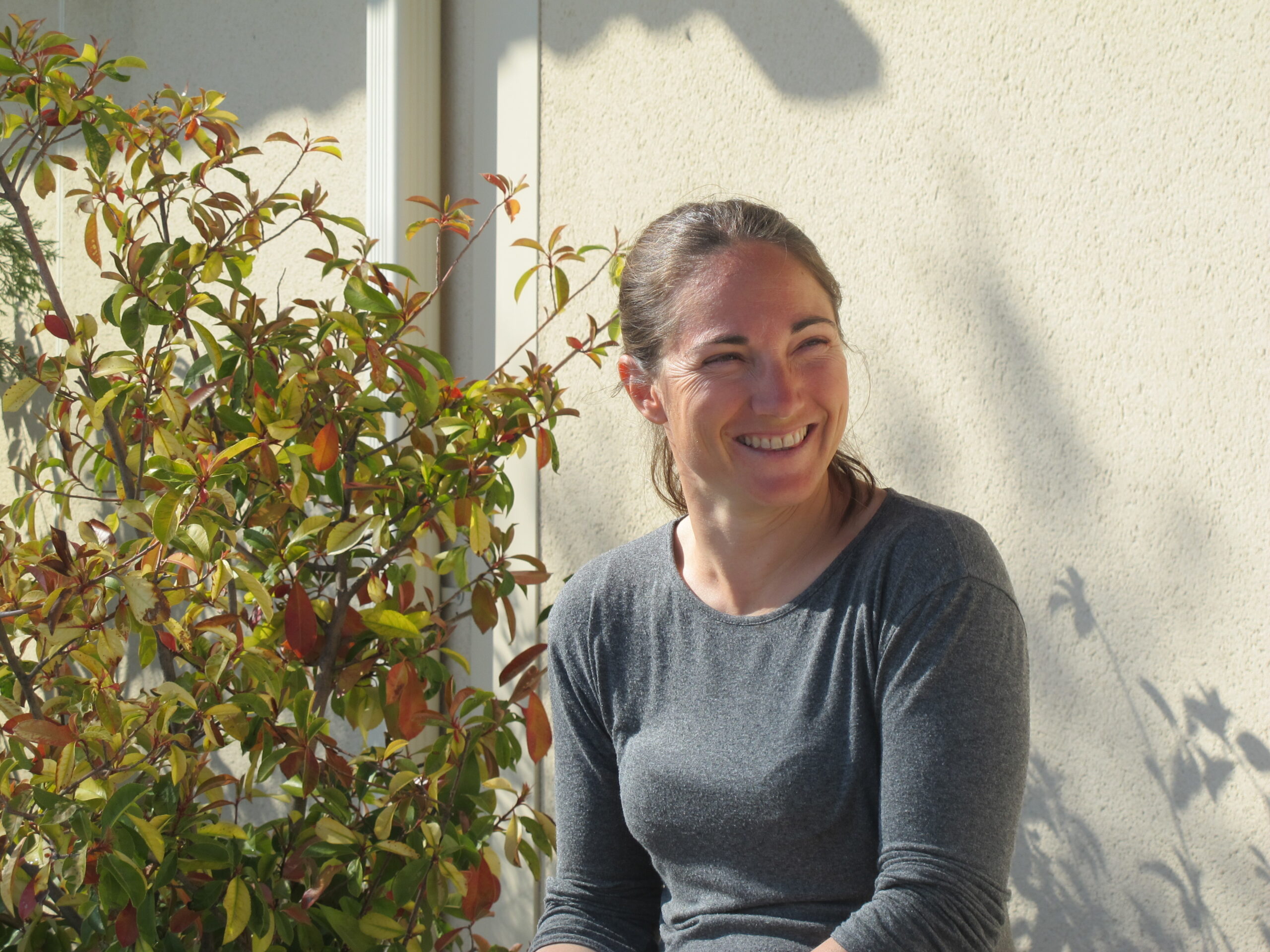Interview with Elodie Balme, Domaine Elodie Balme, Rasteau

Interview with Elodie Balme via Zoom 5th June 2020.
Edited for clarity and brevity.
How did you find yourself working in wine?
I was born into it; my parents took their grapes to the cave co-operative. I always knew I wanted to work in wine, but I didn’t see myself only working in the vineyard for my whole life, so I studied the commercial side of wine for 2 years after the BAC, then I did a diploma in winemaking. After that we decided to build a small winery, to work on 3 or 4 hectares, and to continue with the cave co-operative at the same time.
So the vineyards that you work today, they are family vineyards that belonged to your parents?
It’s the vines that my father worked himself, and since then I’ve bought a hectare and a half in Rasteau when it passed into Cru. But it’s mostly the 27ha that my father had.
Do you have any brothers or sisters?
I have a sister; she has a bookshop in Vaison. The vines, the cellar, they’ve never interested her.
Have you ever felt responsible to take on the family vineyard?
I was lucky because I’m passionate about wine, it’s interested me since I was very young. But I felt responsible too, because it’s a family business, even if it was taking grapes to the co-operative, these are vines that were worked by my grandfather, my parents, and even further back, and I didn’t want to be the generation that sold it all off, it would break my heart. My parents always supported me because I was interested, but they never pushed me, it was my own choice.
Most winemakers I know are men. Why is it more common for men to work in wine, to make wine?
It’s a historical thing, it’s because the job is difficult, physically difficult. But the job that I know is nothing like the work my grandparents knew. Everything they did was by hand, they didn’t have the tools we have today, they didn’t have tractors, the means to hire staff. But there are lots of jobs done in the vineyards that were always done by women, pruning, debudding, taking care of young plants, things like that, not physically challenging. But for women to take on an estate, to give it their name, to say ‘it’s my estate, it’s not my father’s, not my husband’s, not my brother’s, it’s mine’ – that’s a bit more recent, as culturally… it would have drawn attention to them, it would have been unusual. It was more of a male setting. A woman would be more likely to feel judged.
Have you ever felt that people have been prejudiced against you, as a woman winemaker in the Southern Rhône?
Personally, I’ve never felt that I’ve been prejudiced against for being a woman. I’ve never felt that from neighbouring winemakers. People are more likely to be prejudiced when you’re young, like you don’t know what you’re doing or you have no experience. And also if you’re from elsewhere; if you’re a foreigner and you buy a domaine, people are more likely to watch what you’re doing. And because I was from a local family, it was logical that I should take it on, it didn’t shock anyone.
In France, I still hear people describing wines as ‘feminine’ and ‘masculine’, whereas in England it’s no longer as common as it was.
When I first started out everyone would ask me the same question, ‘do you think you make feminine wines?’, and really this question irritated me! I don’t make masculine wine or feminine wine; I just make wine! My wine! Simple as that. But now, I think I know what they meant by asking me that – because it’s true, it is a feminine style of wine after all. For me, feminine wines – which can be made by men too – are wines which are less extracted, less austere. We know what it means.
And how could we describe your style of wine compared to others wines of Rasteau?
You could say it’s feminine, it has fine tannins, it’s less extracted, it has less heat, it’s better balanced – I’m not saying others’ aren’t good, it’s not a quality judgement! – but I think my wines are more accessible than lots of others from Rasteau. With Rasteau terroir, you can quickly have a lot of heat in the wine, quite marked tannins, great quality but pretty massive wines, and with feminine wines – like mine perhaps – there’s a bit less of that, they’re less pushed in that direction. In Rasteau there are some other women winemakers that make wines in that style, a bit like mine, more accessible, more on the fruit, less austere. But there are men who make wine in a feminine style in Rasteau as well – so is it in fact a more modern style, more than something that’s feminine or masculine?
For example, Domaine Mikael Boutin, it’s a small domaine in Rasteau, and a bit like mine, his wines are very accessible, velvety, without coarse tannins – so I find his style rather feminine. There’s nothing particularly feminine in his manner… is it a question of character or generation? That’s possible too. And Domaine Gramiller – lots of depth, but freshness at the same time, that drink well in their youth, you don’t need to keep them. So perhaps it’s more a question of generations than of men and women.
To buy a copy of my latest book, Wines of the Rhône, please click here.

